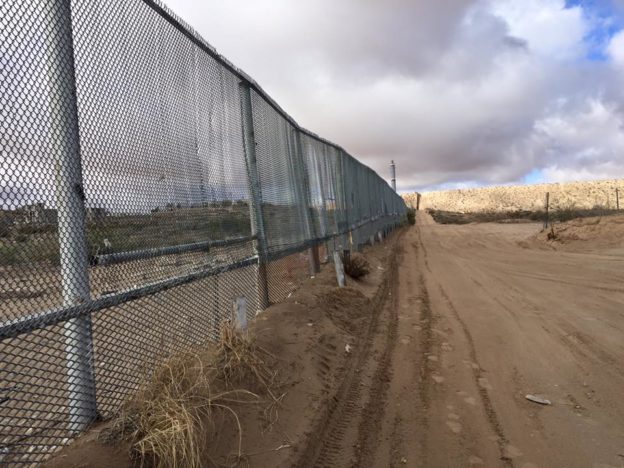
Welcoming Immigrants at the Kino Border Initiative
Emily Tekolste
March 2, 2020
“¿Como te llamas?” I asked. “What’s your name?”
“Elsa,” she replied.
“No it’s not,” my friend Tracey quickly said. Tracey works at the Kino Border Initiative as education coordinator, and I had gone down to visit her and see for myself what was going on at the Mexico-U.S. border.
Still, the little girl became known to me as “Elsa” for much of the rest of my trip to Nogales, Sonora. Despite her fluency in Spanish, I learned that she came from Russia with her parents and younger brother. Only her dad – who is a few years younger than I am – was with her. Her mother had been detained elsewhere with her brother, and they were working to be reunited as they fled religious persecution in Russia and sought safety in the United States. Elsa quickly learned Spanish in the four months they’ve been waiting at the border in Nogales.
Last week, I was privileged to spend four days in the comedor (soup kitchen) run by the Kino Border Initiative (mainly Sisters Cecilia and Engracia and their team of staff and volunteers) just across the border from the United States. With many volunteers from both sides of the border – including several U.S. Americans who had come from other parts of the country to volunteer for up to a month – I shared life with migrants from Mexico, Central America, and other parts of the world. We fed nearly 200 people two meals per day in multiple shifts.
There were so many children – from infants still nursing to teenagers and young adults. There was so much hope even in the midst of trauma. There was a spirit of generosity – so many of the migrants themselves active in the work of the comedor, helping to feed and clean during and after every meal.
When I was in Nogales, MPP (the so-called Migrant Protection Protocol implemented a year ago by the Trump Administration, also known as “Remain in Mexico”) had just begun on the ground in Nogales. Asylum-seekers fleeing violence in Mexico, Guatemala, Honduras, El Salvador, Russia, and many other places now have to go through asylum court before they can enter the U.S. There’s a great deal of corruption in the metering of people getting to meet with U.S. officials, and migrants must face asylum court in El Paso, a 5-hour drive from Nogales. For people without transportation, this means expensive bus tickets for a minimal chance at safety (less than 1% of asylum-seekers are granted asylum by the U.S. government).
There’s so much more to say about my time at the border. What struck me most when I first arrived was the normalcy in the midst of such uncertainty and trauma. Families were living. Children were joyful or upset, depending on the moment. One little girl, who I began calling “La jefa,” the boss, was running around re-setting the tables when I met her. She’d eaten and was now intending to be the best helper there as she put out new napkins, spoons, and cups. And as we began hearing stories (for me, mostly from other volunteers who could translate the Spanish that most migrants spoke), this normalcy seemed anything but normal. I began thinking of the lost educational opportunities for these kids as they waited. I began to see the future of frustration in school as they continued to work through the trauma they’d experienced and then had to make up for so much lost time and language barriers. I began to see the lost potential of so many human beings just seeking a place to live safely and take care of their families. I began to see the vast differences between my world and their worlds – all because of where I was born and the color of my skin.
As I begin to grapple with these realities in a new way – in light of a few relationships I began to develop during my time with Kino – I am reminded in a new way of the importance of changing the system. We need to ensure policies are created to recognize and honor the fullness of the human person, no matter what their country of origin. We need policies that recognize that poverty is itself a form of violence. We need policies of welcome and policies that create an opportunity for all to thrive.
And so I return to Washington to continue the work of justice, of building teams of advocates and organizers, of lobbying to change policy and educating to change the social narrative. And I hope you will join us.








Emily T,
Thanks for your report on your time volunteering on the border. It recalls for me my nine months in Ciudad Juarez/El Paso in very similar circumstances. Back in 1989, Central Americans were fleeing the “genocide” against indigenous people in Guatemala and the Civil War in El Salvador. In addition, many Mexicans were fleeing poverty.
Bruce A